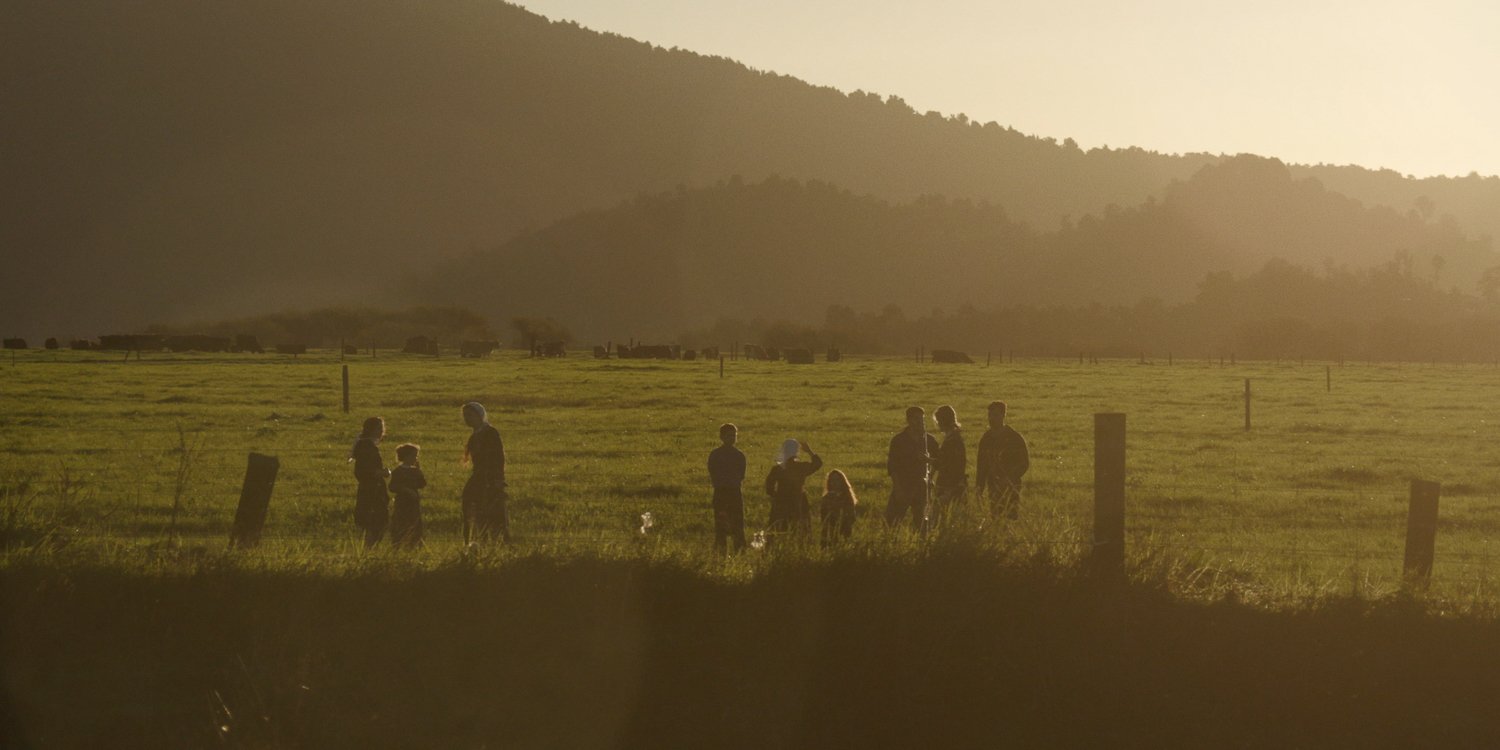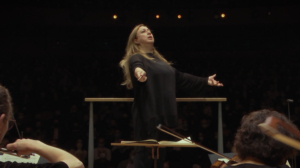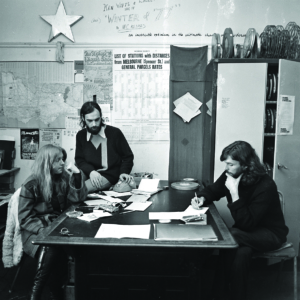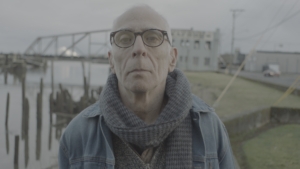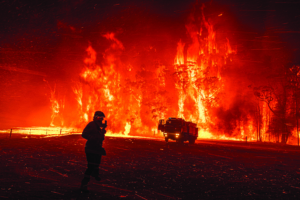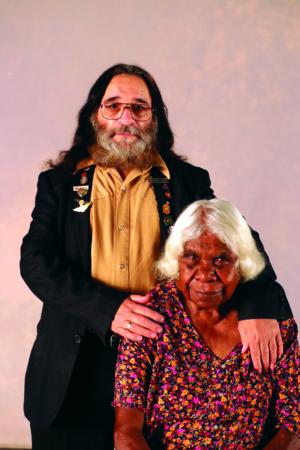In Gloriavale (Fergus Grady & Noel Smyth, 2022), human rights investigator Steve Patterson compares the international perception of New Zealand to what is, inarguably, a cult operating in its midst. Thanks in part to former prime minister Jacinda Ardern, New Zealand is widely seen as a progressive country – one where a young woman can find independence, support and success.[1]See Pete McKenzie, ‘Abroad, Jacinda Ardern Is a Star. At Home, She’s Losing Her Shine.’, The New York Times, updated 28 June 2022, <https://www.nytimes.com/2022/06/27/world/asia/new-zealand-jacinda-ardern-popularity.html>, accessed 31 August 2023. Yet, for the women living within the Gloriavale Christian Community, which occupies a slice of bucolic land in the remote Haupiri Valley on the South Island, their lives are ones of utter servitude and sexual subjugation: forced into marriages in which they are mandated to procreate, with no access to contraception or ability to reject male sexual advances; and commanded to work day and night for no pay, with no power, no freedom, no independence.
‘This is a slavery case. This is about people who don’t have any freedoms. This is not your classic human rights case,’ says Patterson, on screen. Ever the lawyer, he offers the legal definition of servitude as: ‘a person living on the property belonging to another, to perform a service, [who is] unable to leave’.[2]Patterson is paraphrasing the definition of servitude provided by the European Court of Human Rights. See European Court of Human Rights, Guide on Article 4 of the European Convention on Human Rights: Prohibition of Slavery and Forced Labour, 2022, p. 8, available at <https://www.echr.coe.int/documents/d/echr/guide_art_4_eng>, accessed 30 August 2023. Clearly, this is an apt description of what has been happening at Gloriavale.
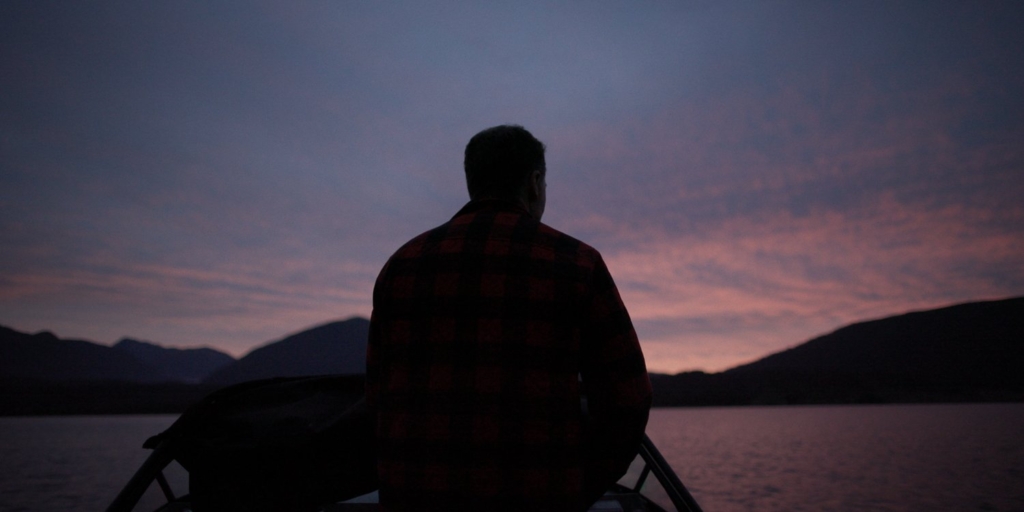
In Grady and Smyth’s at once gripping and horrifying documentary, we meet a gathering of legal experts (Patterson, barristers Brian Henry and Dennis Gates, and former police detective Janina Kitchen) seeking to bring the organisation down one court case at a time, as well as fortysomething siblings John Ready and Virginia Courage, who – though born and raised in Gloriavale – are now part of a community of ‘leavers’ hoping to remove the cult’s leadership from the outside.
Initially christened the Springbank Christian Community, Gloriavale was founded in 1969 by Neville Cooper, an Australian expat whose leadership gave the group their early local name, ‘The Cooperites’, and who later changed his name to Hopeful Christian.[3]See ‘Abuse at Gloriavale: “The Leaders Knew Everything”’, Radio New Zealand, 16 May 2018, <https://www.rnz.co.nz/national/programmes/checkpoint/audio/2018645198/abuse-at-gloriavale-the-leaders-knew-everything>, accessed 30 August 2023. In the early 1990s, the group established their current base, which was settled in the hope of achieving full self-sufficiency, its vast land supporting dairy, cattle and honey farming. But the increased isolation, and the increased income, eventually – or inevitably – turned Gloriavale into what Ready calls ‘a people-damaging machine’.
In 1995, soon after the relocation, Christian was jailed for sexually assaulting a young woman, and accused of a range of other sexual offences against children.[4]See Jean Edwards, ‘Gloriavale: Details of Crimes Committed by Founder Hopeful Christian Made Public for the First Time’, Radio New Zealand, 17 February 2023, <https://www.rnz.co.nz/news/national/484395/gloriavale-details-of-crimes-committed-by-founder-hopeful-christian-made-public-for-first-time>, accessed 30 August 2023. Over time, several other cases of abuse from within the community were brought before the courts, much of it having been perpetrated against minors. A teacher named Just Standfast remained employed by the community’s school after being found guilty of indecently assaulting a child,[5]See Joanne Carroll, ‘Gloriavale Teacher Convicted of Kissing, Touching 9-year-old’, Stuff, 19 December 2019, <https://www.stuff.co.nz/national/113900115/gloriavale-teacher-convicted-of-kissing-touching-9yearold>, accessed 31 August 2023. and Christian’s successor as leader, Howard Temple, has been charged with numerous counts of sexual abuse against minors.[6]See Niva Chittock, ‘Gloriavale Leader Howard Temple Facing Indecency Charges Involving 10 Girls’, Radio New Zealand, 2 August 2023, <https://www.rnz.co.nz/news/national/494991/gloriavale-leader-howard-temple-facing-indecency-charges-involving-10-girls>, accessed 31 August 2023.
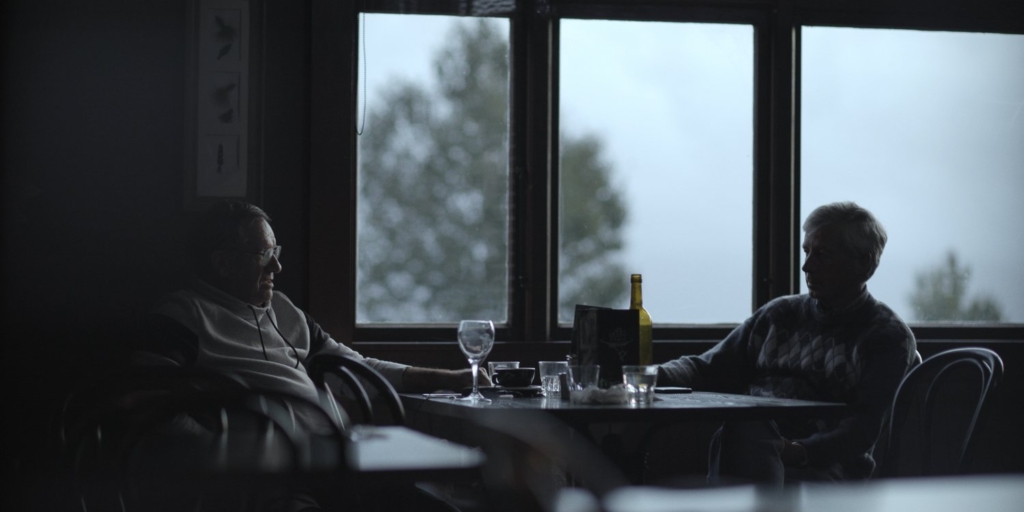
While in prison, Christian created a council of trustees (all men, of course) to oversee Gloriavale’s operations, and the power structure was changed from having a single leader to a group of ‘shepherds’. In old age and declining health, Christian created a further gulf between those in power and those under subjugation: henceforth, the word of shepherds was to be unquestioned. With rank-and-file members systematically stripped of their power, freedom, rights and earnings – required to sign a Faustian ‘Declaration of Commitment to Jesus Christ and His Church and Community at Gloriavale’[7]See Tim Brown, ‘Gloriavale’s Leaders Should Be Removed and Replaced, Former Members Say’, Radio New Zealand, 19 May 2021, <https://www.rnz.co.nz/news/national/442872/gloriavale-s-leaders-should-be-removed-and-replaced-former-members-say>, accessed 31 August 2023. – Gloriavale transformed from alternative commune to what Patterson calls ‘a rort on the taxpayer’.
At many points in Gloriavale, figures on screen lament how uninterested the government has been in going after the cult; of the legal case he’s working on, Patterson says, ‘it takes a whole bunch of private citizens to get together and do, basically, what the government should be doing’.
Armed with charitable trust status and attendant tax breaks, Gloriavale had, by the time the documentary was made, become a NZ$60 million large-scale farming enterprise undertaking oil exploration on their lands, bankrolled by the daily toil of an indentured army of unpaid labourers. When Ready files a civil claim in the Christchurch High Court to remove the board of trustees and replace them with a public trust, he hears leaked word from inside Gloriavale that the board has set aside NZ$100,000 per month to contest the case – a ‘war machine’, as Ready puts it, mobilising to fight for their right to oversee modern-day slavery. At many points in Gloriavale, figures on screen lament how uninterested the government has been in going after the cult; of the legal case he’s working on, Patterson says, ‘it takes a whole bunch of private citizens to get together and do, basically, what the government should be doing’. And the cult’s economic power seems the likely reason why its leaders have been able to operate above the law, resisting previous attempts to bring them to justice.
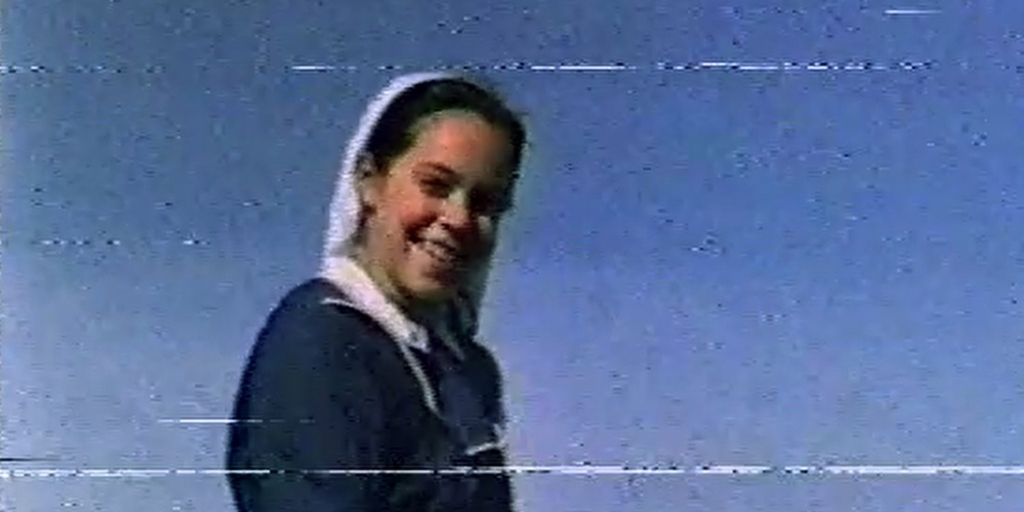
All these horrors – abuse, childhood trauma, misogyny, exploitation – are, sadly, a familiar descent into darkness for those who’ve seen stories of cults on screen. Documentary chronicles of shadowy religious movements such as Jonestown: The Life and Death of Peoples Temple (Stanley Nelson, 2006), Prophet’s Prey (Amy Berg, 2015), Going Clear: Scientology and the Prison of Belief (Alex Gibney, 2015) and The Family (Rosie Jones, 2016) collectively constitute a heartbreaking catalogue of cruelty and suffering, a study in the evils of religious indoctrination.
‘This is a typical cult,’ says Liz Gregory, manager of the Gloriavale Leavers’ Support Trust, in a press interview. ‘These groups always have the same hallmarks: power, control, sex abuse, physical abuse, exploitation of labour.’[8]Liz Gregory, quoted in Emma Clifton, ‘“You’ve Got No Idea of the Harm That’s Going On in There. Because Gloriavale Breaks People”’, Capsule, 3 August 2022, <https://capsulenz.com/do/television-and-movies/gloriavale-documentary/>, accessed 31 August 2023. In the documentary, Gregory is seen on screen helping Courage transition to the outside world, as well as cataloguing the psychological state of cult members within and without; she offers the memorable line that, due to systems of compliance and a culture of psychological warping, Gloriavale has ‘a population you don’t even need to brainwash’.
In making Gloriavale, Grady and Smyth are blessed with an archive of analog footage: staticky home-video recordings that are shot through with the spectral spookiness of old technology, a vision of the past. There’s footage of Ready and Courage from throughout their lives, from childhood through to adolescence and adulthood, the passage of time seen vividly in their faces. Early in the film, we see footage of kids playing in school uniforms, before we learn about the power structures those uniforms enforce. An opening sting – in which we hear voiceover testimony from unseen/unknown subjects detailing Gloriavale’s turn from rural idyll to prison camp, one description comparing the outcome to Animal Farm – ends with a great symbolic image: a baby reduced to tears when they realise they’re shut behind a self-locking gate.
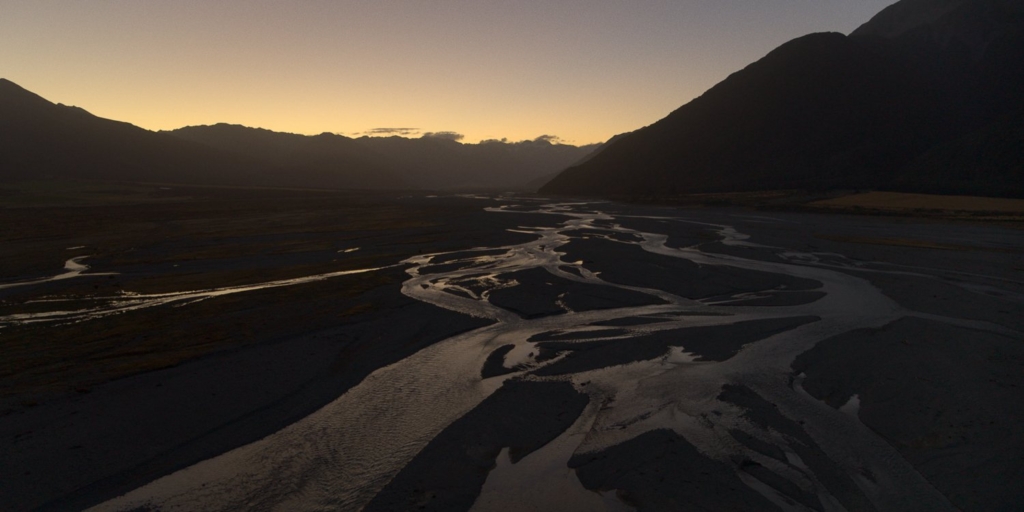
However, when not sifting through footage of the past, the present-moment filming reveals Grady and Smyth to be more from the observational school of documentary. There’s no narration, no infographics, no talking-head studio interviews; when we listen to people talk, they’re situated in rural environments, or inside cars. The facts of the case that we learn are communicated directly by lawyers, while the firsthand stories we hear are recounted by Ready, Courage and, eventually, their mother, Sharon Ready, who’s spent over fifty years living in the community (including during filming and throughout her children’s legal trials against Gloriavale – and, as an end intertitle tells us, even now).
When not sifting through footage of the past, the present-moment filming reveals Grady and Smyth to be more from the observational school of documentary. There’s no narration, no infographics, no talking-head studio interviews; when we listen to people talk, they’re situated in rural environments, or inside cars.
Sharon Ready’s decision to speak out against Gloriavale while remaining a resident is a huge development; it gives the film its definitive character study, the conflict housed in one person. She’s at first a slightly reserved interviewee, seemingly feeling none of the anger of her two ‘leaver’ children (when we see her son, having been forcibly exiled from his family, working out in a barn Rocky-style, it’s a sure symbol of his rage). She’s at pains to point out how positive the early days of the Springbank Christian Community were, and how, even with the arrival at the Gloriavale property, there was a sense of communal spirit and hope. There’s even humour when she admits that she’s unable to remember all sixty of her grandchildren.
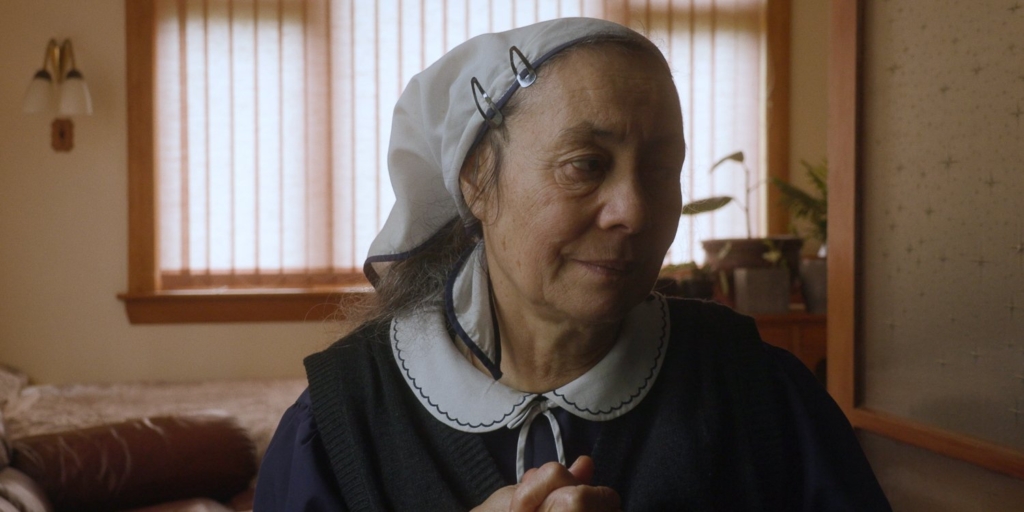
Yet, as Sharon Ready grows more comfortable in front of camera, she reveals more, telling tragic stories from her past and grappling with the pain her beloved community is causing people. She goes from speaking to the filmmakers to speaking to the media, all while remaining in Gloriavale – isolated in the only place she knows, even though she’s being shunned and attacked within. As Patterson notes, ‘In a patriarchal society, she’s never had a voice.’ Her finding that voice is something we see on camera.
The moment when Sharon Ready – unexpectedly, covertly – first talks to the filmmakers is one of the transformative moments in which Gloriavale becomes less a portrait of a painful past and more an in-the-moment account of a growing movement of defiance. As the filmmakers further their investigation, there are shades of journalism movies, on-the-ground documentaries, even straight-up thrillers: a night-vision recon mission by Kitchen, Henry and Patterson to meet with an anonymous source on Gloriavale property after dark; Patterson communicating with a network of insiders via burner phones; the dramatic last-act turn by John Ready’s brother-in-law Zion Pilgrim, who has until this point been serving on Gloriavale’s leadership council and board of trustees.
Together with his wife, Gloriana, Pilgrim has written a letter to the leadership criticising problems in the community, especially sexual predation. The letter is then leaked to the media – it turns out that Pilgrim himself did so – which leads to the couple being called into a ‘servants and shepherds meeting’. We’ve previously heard talk of these disciplinary sessions, in which the shepherds routinely berate or demean those called in; but, in another vivid investigative moment, we now get to hear one in the documentary, the Pilgrims having covertly recorded their meeting.
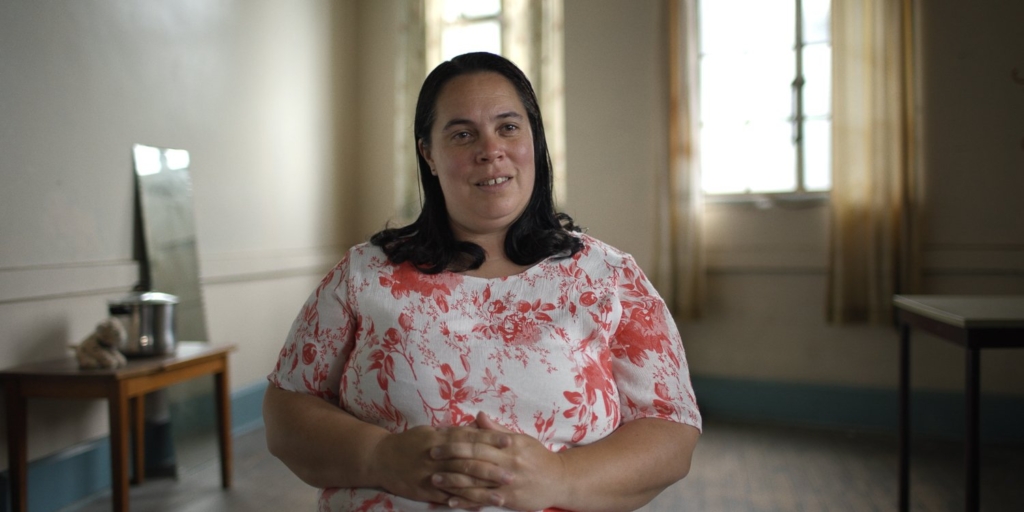
Whereas Gloriavale maintains a public face of Christian benevolence, the recording takes us behind closed doors, to the reality of living inside. The voices of the unidentified shepherds make the horrors of patriarchal rule manifest: ‘I suffer not a woman to teach or to usurp authority over a man, but to be in silence!’ one lectures, when Gloriana Pilgrim merely dares to speak in the meeting. Henry calls the meeting an ‘inquisition’, the dark religious subtext telling.
From there, the final reel of Gloriavale moves into its legal proceedings phase. We don’t sit in on the courtroom drama, but see reactions to the various cases: a high-court hearing; a judicial settlement; private litigation; an employment court hearing. The on-the-ground narrative slows; we even get a ‘10 Months Later’ intertitle. John Ready has been reunited with his family; the police are investigating a sexual assault perpetrated against Courage during her childhood at Gloriavale; Sharon Ready, who remains in the community, becomes a star witness speaking out against them.
The wheels of justice are slow, but there’s a sense that Gloriavale’s leaders are finally being brought to account, that the cult won’t go on as it has. ‘Justice for human rights victims is long, and it’s a hard road,’ Patterson offers. ‘[But] even if it’s going to take ten or twenty years, […] it’s still going to happen.’ Aside from archival footage of Christian, we only see the perpetrators of all these crimes in passing pinboard headshots. They remain enshrined in secrecy, protected by the power structure they have built up within their cruel community. For Grady and Smyth, who lean towards journalism in their filmmaking, cutting these men out wasn’t an editorial choice, made so that the only voices we hear herein are the victims. As the final intertitle before the credits puts it, simply: ‘The Gloriavale leadership declined to comment.’
Endnotes
| 1 | See Pete McKenzie, ‘Abroad, Jacinda Ardern Is a Star. At Home, She’s Losing Her Shine.’, The New York Times, updated 28 June 2022, <https://www.nytimes.com/2022/06/27/world/asia/new-zealand-jacinda-ardern-popularity.html>, accessed 31 August 2023. |
|---|---|
| 2 | Patterson is paraphrasing the definition of servitude provided by the European Court of Human Rights. See European Court of Human Rights, Guide on Article 4 of the European Convention on Human Rights: Prohibition of Slavery and Forced Labour, 2022, p. 8, available at <https://www.echr.coe.int/documents/d/echr/guide_art_4_eng>, accessed 30 August 2023. |
| 3 | See ‘Abuse at Gloriavale: “The Leaders Knew Everything”’, Radio New Zealand, 16 May 2018, <https://www.rnz.co.nz/national/programmes/checkpoint/audio/2018645198/abuse-at-gloriavale-the-leaders-knew-everything>, accessed 30 August 2023. |
| 4 | See Jean Edwards, ‘Gloriavale: Details of Crimes Committed by Founder Hopeful Christian Made Public for the First Time’, Radio New Zealand, 17 February 2023, <https://www.rnz.co.nz/news/national/484395/gloriavale-details-of-crimes-committed-by-founder-hopeful-christian-made-public-for-first-time>, accessed 30 August 2023. |
| 5 | See Joanne Carroll, ‘Gloriavale Teacher Convicted of Kissing, Touching 9-year-old’, Stuff, 19 December 2019, <https://www.stuff.co.nz/national/113900115/gloriavale-teacher-convicted-of-kissing-touching-9yearold>, accessed 31 August 2023. |
| 6 | See Niva Chittock, ‘Gloriavale Leader Howard Temple Facing Indecency Charges Involving 10 Girls’, Radio New Zealand, 2 August 2023, <https://www.rnz.co.nz/news/national/494991/gloriavale-leader-howard-temple-facing-indecency-charges-involving-10-girls>, accessed 31 August 2023. |
| 7 | See Tim Brown, ‘Gloriavale’s Leaders Should Be Removed and Replaced, Former Members Say’, Radio New Zealand, 19 May 2021, <https://www.rnz.co.nz/news/national/442872/gloriavale-s-leaders-should-be-removed-and-replaced-former-members-say>, accessed 31 August 2023. |
| 8 | Liz Gregory, quoted in Emma Clifton, ‘“You’ve Got No Idea of the Harm That’s Going On in There. Because Gloriavale Breaks People”’, Capsule, 3 August 2022, <https://capsulenz.com/do/television-and-movies/gloriavale-documentary/>, accessed 31 August 2023. |
